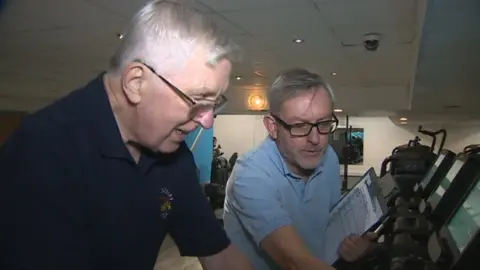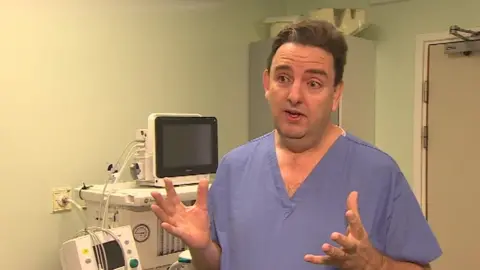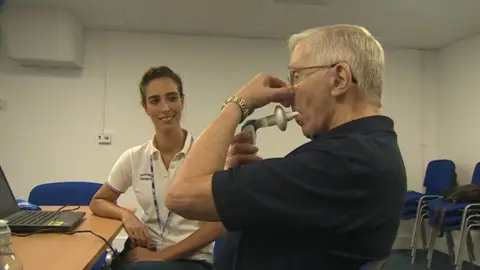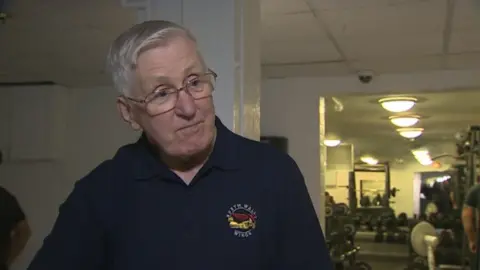Wrexham 'prehabilitation' programme helps patients get in shape
 BBC
BBCPeople awaiting surgery are being put through their paces as part of a scheme to improve outcomes and boost recovery.
The "prehabilitation" sessions are being put on by Wrexham Maelor Hospital for the highest risk patients and involve exercise and dietary advice.
Early results show people on the scheme are able to return home two-and-a-half days earlier on average.
Allen Prescott, 77, had surgery after a bowel cancer diagnosis. His wife credits the scheme with his recovery.
A team of dieticians, physiotherapists and occupational therapists are working with a local leisure centre to hold three "prehab" sessions per week, according to Betsi Cadwaladr health board.
The trial is expected to last until March 2020 with sessions currently offered to patients awaiting bowel and upper gastro-intestinal surgery.

"Undergoing major surgery is physically, nutritionally and psychologically demanding for patients," explained consultant anaesthetist Neil Agnew.
"We hope by helping patients to get as fit as they can before surgery, they will be less likely to suffer complications, and recover quicker."
Mr Prescott, from Wrexham, never expected to find himself in the gym as a 77-year-old grandfather with heart problems and diabetes.
But after a cancer diagnosis, staff at the hospital challenged him to get in better shape for life-saving surgery.

"They said 'can you help us by doing the programme to bring you up to full fitness as much as we can?'," he recalled.
"That little bit of exercise certainly puts you in a better frame of mind as well as a better body."
In addition to the exercise, Mr Prescott had his lung capacity measured regularly and was given dietary advice and emotional support.
Around 40 patients have been through the programme and the results have been encouraging, according to the health board.
In addition to quicker recovery times, the health board said re-admission rates have fallen from 15% to 3.6%.
Similar programmes have dramatically reduced complications and conditions like pneumonia as well as the length of post-operative hospital stays.
"I can't say enough how good this team is, all doing their stuff... it's great," added retired sheet metal worker Mr Prescott, originally from Leeds.

Just five days after surgery Mr Prescott was making good progress at home with his wife Christine, who credits the programme with helping him survive the surgery.
"I firmly believe not only in the benefits in terms of enhanced recovery, but in Alan's case it actually helped him getting through the operation," said Mrs Prescott.
After pushing his body through "prehab" Mr Prescott said he hopes to continue his healthy lifestyle.
